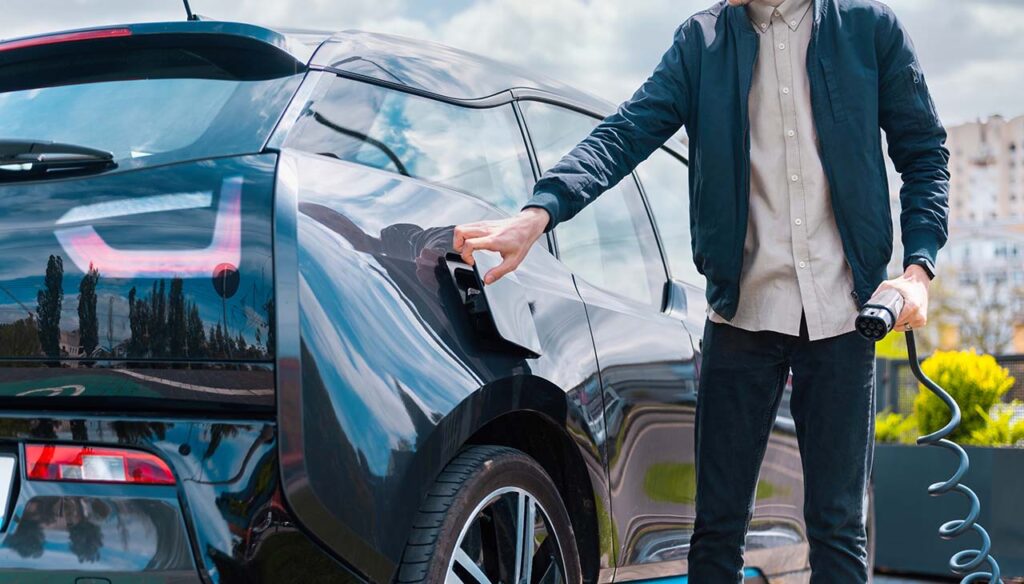In the realm of transportation, electric vehicles (EVs) are rapidly gaining traction as a sustainable and efficient alternative to traditional gasoline-powered cars. As the number of EVs on the roads multiplies, it becomes increasingly important for owners and potential buyers to understand the unique aspects of insuring these vehicles. This article will delve into the intricacies of auto insurance for EVs, shedding light on the factors that affect premiums, the types of coverage tailored for EVs, and tips to ensure you get the best insurance for your electric vehicle.
Coverage Options for Electric Vehicles
Liability Coverage
Liability coverage is a legal requirement for all vehicles, including EVs. This insurance covers the costs of property damage and bodily injury caused by the insured vehicle in an accident where the policyholder is at fault.
Collision Coverage
Collision coverage is especially important for EVs because it covers the costs of repairing or replacing the vehicle if it’s damaged in an accident, regardless of who is at fault. The high cost of EV replacement parts and specialized repair techniques can make this coverage more expensive compared to traditional vehicles.
Comprehensive Coverage
Comprehensive coverage provides protection against damage to your EV from incidents other than collisions, such as theft, vandalism, fire, or natural disasters. This is crucial for EVs due to their high value and the cost of their unique components like the battery system.
Uninsured/Underinsured Motorist Coverage
Uninsured or underinsured motorist coverage is increasingly important with the rise of EVs on the road. If you’re involved in an accident with a motorist who is not insured or doesn’t have sufficient coverage to cover your vehicle’s repair or replacement costs, this coverage will make up the difference.
Personal Injury Protection (PIP)
Personal Injury Protection, also known as “no-fault” insurance, covers medical expenses and, in many cases, lost wages and other damages for the driver and passengers of the policyholder’s car, regardless of who is at fault in the accident. The increasing popularity of EVs, which can, in some cases, have a higher crash rate due to their quiet engines, makes PIP a valuable coverage option.
Factors Affecting Insurance Premiums for Electric Vehicles
Vehicle Make and Model
The make and model of an electric vehicle significantly impact insurance premiums. High-end EV models, like Tesla’s Model S or Model X, typically have higher premiums due to their higher replacement costs. Conversely, more affordable models like Nissan Leaf or Chevrolet Bolt may attract lower insurance costs.
Range and Battery Capacity
The range and battery capacity of an EV can also affect the insurance premium. EVs with larger batteries and longer ranges often come with higher premiums due to the increased cost to replace the battery system.
Repair Costs
Repair costs for EVs can be significantly higher than for conventional cars because of their complex electrical systems and costly specialized parts. Therefore, insurance premiums for EVs can be higher to account for these potential expenses.
Safety Features
Many EVs come equipped with advanced safety features, such as automatic emergency braking, blind-spot detection, and lane-keeping assist, which can help reduce the risk of accidents. Insurance companies often offer discounts for vehicles with these safety features, potentially lowering the premiums for EVs.
Charging Infrastructure Availability
The availability of charging infrastructure can indirectly affect insurance premiums. Areas with abundant charging stations may see more EVs, leading to more experienced EV drivers and potentially fewer accidents. Conversely, in areas with limited charging infrastructure, EV usage may be lower, and insurance companies may lack data to accurately assess risk, potentially leading to higher premiums.
Special Considerations for Electric Vehicles
Battery Replacement Coverage
A unique aspect of insuring electric vehicles is the option for battery replacement coverage. Electric vehicle batteries are a significant part of the vehicle’s overall value and can be costly to replace. Some insurance companies offer specific coverage for battery replacement, especially for leased batteries, providing peace of mind to EV owners.
Usage-Based Insurance
Usage-based insurance (UBI), also known as pay-as-you-drive insurance, can be an attractive option for EV owners. These policies consider factors like how much, when, and where you drive in determining premiums. As EVs are often used for shorter trips or commuting, they may benefit from lower rates under UBI policies.
Environmental Benefits
Finally, it’s noteworthy to mention the environmental benefits of EVs, which may indirectly influence insurance. As more insurance companies recognize the environmental advantages of electric vehicles and their role in reducing carbon emissions, they may offer special discounts for EV owners. Additionally, the increasing adoption of EVs may lead to a greener, safer transportation environment, potentially contributing to lower insurance costs in the long run.
Insurance Discounts and Incentives for Electric Vehicles
Federal and State Tax Credits
One of the significant financial advantages that come with owning an electric vehicle (EV) is the availability of federal and state tax credits. The federal government offers a tax credit of up to $7,500 for new EVs, although the credit begins to phase out once a manufacturer sells 200,000 eligible vehicles. On the state level, the amount and availability of credits vary, with some states offering additional incentives such as rebates or exemption from vehicle emissions testing.
Insurance Company Discounts
Some insurance companies recognize the environmental benefits and safety features of electric vehicles, offering discounts to EV owners. For example, insurers may provide a ‘green’ discount for driving a vehicle that has less environmental impact. Furthermore, insurance companies often offer discounts for cars equipped with advanced safety features, which are common in many EVs.
Energy-Efficient Vehicle Programs
There are also a number of energy-efficient vehicle programs that can benefit EV owners. These programs, often administered by local utility companies, offer benefits such as reduced electricity rates for EV charging during off-peak hours. In addition, some programs provide rebates for home charging equipment. These incentives, while not directly influencing insurance costs, can contribute to the overall affordability of owning and operating an EV.







